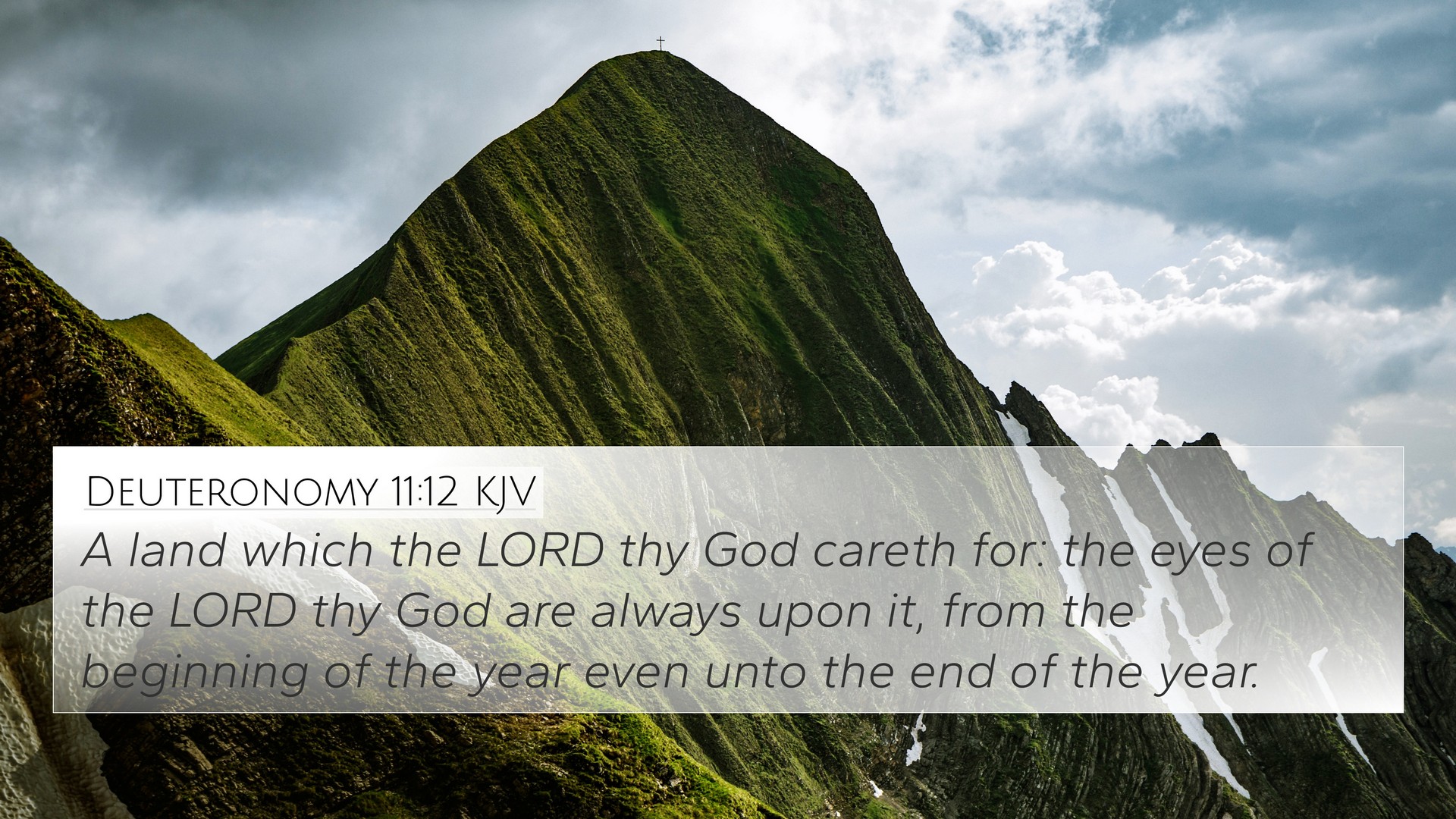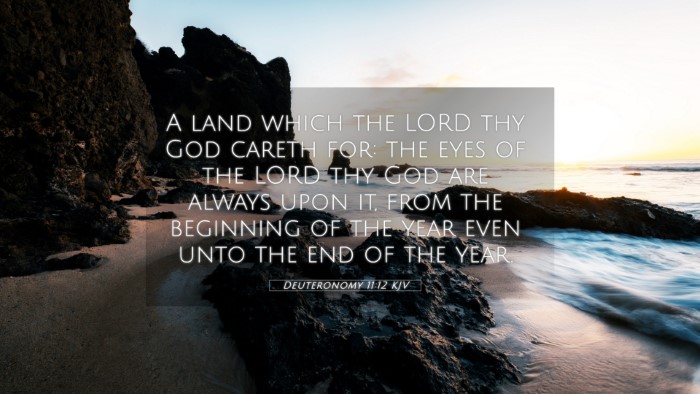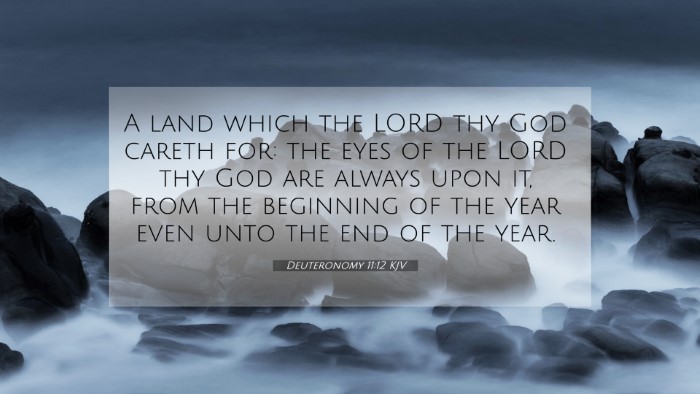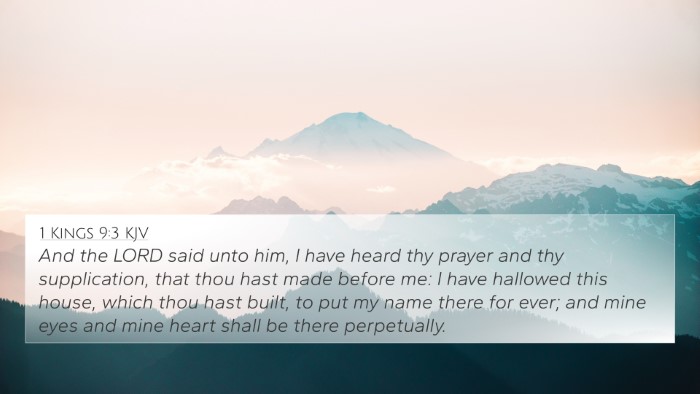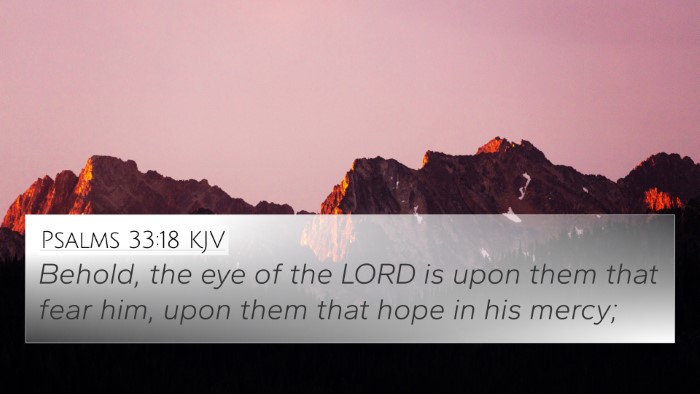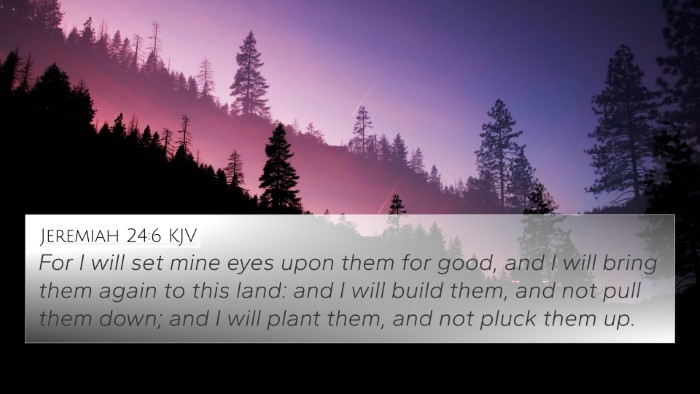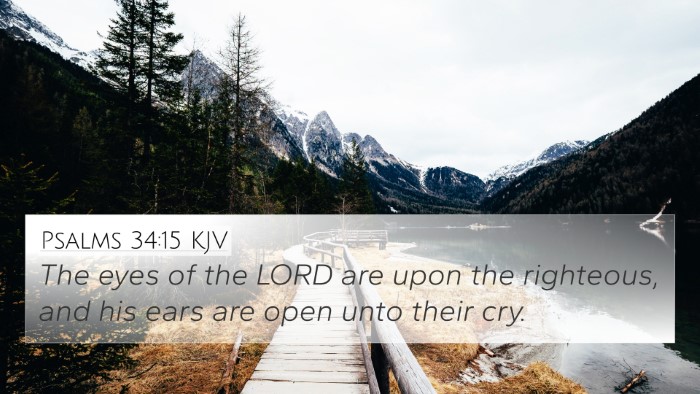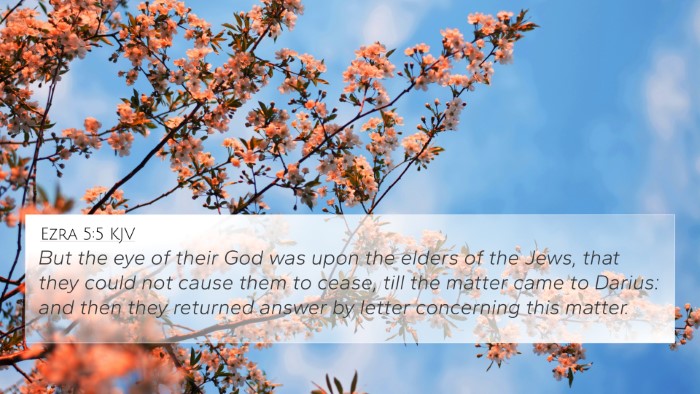Understanding Deuteronomy 11:12
Verse: "A land which the LORD thy God careth for: the eyes of the LORD thy God are always upon it from the beginning of the year even unto the end of the year." (Deuteronomy 11:12)
Summary of Insights
This verse highlights the deep care and watchfulness of God over the Promised Land, illustrating His constant presence and providence. The connection between this affirmation and the overarching themes of divine protection and guidance is significant within the context of Israel's journey toward the land flowing with milk and honey.
Key Themes
- Divine Watchfulness: God’s eyes are perpetually observing the land, reinforcing the idea that nothing escapes His notice.
- Covenantal Promises: This reflects the covenant relationship between God and Israel, where the land serves as both a physical and spiritual inheritance.
- Continuity of God's Care: The phrase "from the beginning of the year even unto the end of the year" denotes the constant nature of God’s provision throughout time.
Commentary Insights
Matthew Henry's Commentary
Henry emphasizes God's watchfulness as one of the most comforting truths for believers. He notes that the land being cared for reflects God's ongoing involvement in the lives of His people and their well-being.
Albert Barnes' Notes
Barnes points out that the reference to the "land" serves as a tangible manifestation of God’s promises to Israel. He argues that this verse beautifully captures the reciprocal nature of the relationship between God and His chosen people.
Adam Clarke's Commentary
Clarke elaborates on the implications of divine oversight, suggesting that this watchful care calls for a response of obedience and trust from the Israelites. He interprets the land as a gift from God that demands stewardship.
Bible Verse Cross-References
- Psalm 32:8: "I will instruct thee and teach thee in the way which thou shalt go: I will guide thee with mine eye."
- Proverbs 15:3: "The eyes of the LORD are in every place, beholding the evil and the good."
- Matthew 6:26: "Behold the fowls of the air: for they sow not, neither do they reap, nor gather into barns; yet your heavenly Father feedeth them. Are ye not much better than they?"
- 1 Peter 3:12: "For the eyes of the Lord are over the righteous, and his ears are open unto their prayers: but the face of the Lord is against them that do evil."
- Isaiah 27:3: "I the LORD do keep it; I will water it every moment: lest any hurt it, I will keep it night and day."
- Jeremiah 31:12: "Therefore they shall come and sing in the height of Zion, and shall flow together to the goodness of the LORD."
- Ezekiel 34:11-12: "For thus saith the Lord GOD; Behold, I, even I, will both search my sheep, and seek them out."
Applications and Reflections
This verse invites readers to reflect on the nature of God's care in their own lives and the assurance that they, too, are under His watchful eye. Just as the Israelites were reminded of their covenant relationship, we are called to recognize our place within the divine family and live in alignment with God's will.
The Role of Cross-Referencing in Understanding Scripture
Cross-referencing Biblical texts enhances the depth of understanding how different scriptures relate to the overall narrative and theological themes. Tools such as Bible concordances and Bible reference resources are valuable for discovering Bible verses that relate to each other, facilitating deeper study and comprehension of God's word.
Engaging in Comparative Bible Verse Analysis
Thematic Bible verse connections can unveil profound insights regarding God’s nature and His relationship with humanity. For example, the connections made between this verse and Matthew 6:26 poignantly underscore the assurance of God's providence across both the Old and New Testaments.
Conclusion
As we explore Deuteronomy 11:12 through the lens of these commentaries and cross-references, we gain a richer understanding of the verse's meaning and its relevance to both the Israelite community and modern believers. Engaging with cross-referencing Bible study methods allows for a deeper appreciation of the Scripture's thematic elements and encourages believers to reflect on God's unwavering care.
